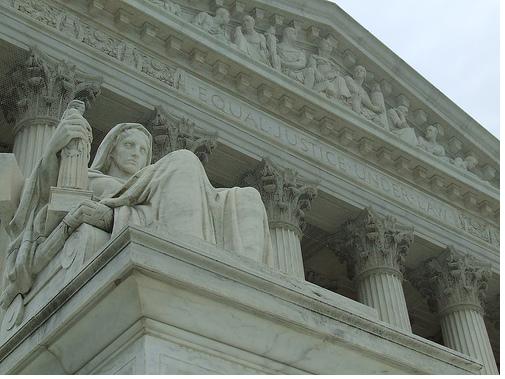Since the Americans with Disabilities Act (ADA) was passed in 1990, there have been numerous high-profile lawsuits that have changed the way insurance companies cover employers. These influential lawsuits have led to significant changes within the legal system, clearly defining what is and is not considered a disability under the law.
If you are battling a disability insurance case, becoming acquainted with these lawsuits can help you to make informed decisions, the most of important of which is hiring a competent legal team. As you learn more about disability cases, choose a reputable law firm their expertise in a variety of practice areas will increase your chances of having a desirable outcome. It is important to be as educated as possible when choosing a legal team, and you will be better able to navigate the complexities of your case by becoming familiar with the following five lawsuits.
Bragdon Vs. Abbott
In 1998, Sidney Abbot sued her dentist, Randon Bragdon, for refusing to fill her cavity in his clinic upon discovering that she was HIV positive. Abbot argued that she was protected from discrimination under the ADA, and that because her HIV infection precluded her from participating in major life activities, primarily reproduction, it must be recognized as a disability under the law.
The Supreme Court ruled in Abbot’s favor, conceding for the first time in legal history that HIV should be considered a disability under the ADA. While this ruling was initially based on medical care, it has expanded disability insurance coverage to those who are infected with HIV.
Additionally, the New Hampshire Bar Association reports that, by defining HIV as a disability, this ruling has been used to prevent countless HIV-positive individuals from many forms of workplace discrimination.
Sutton Vs. United Airlines
When twin sisters Karen Sutton and Kimberly Hinton were denied jobs as pilots with United Airlines due to their acute visual myopia, they filed a lawsuit against the company, arguing that their impairment was protected under the ADA. While the sisters were able to achieve 20/20 vision with corrective lenses, their vision did not meet the airline’s requirements for uncorrected visual acuity. In 1999, the case was dismissed in favor of United, and the district court ruled that visual impairment could not be considered a disability under the ADA. This decision was a controversial one; however, the court maintained that employers have the right to make employment decisions based on physical and mental conditions, provided those conditions do not significantly impair a major life activity.
Cleveland Vs. Policy Management Systems
Carolyn Cleveland, an employee of Policy Management Systems, applied for Social Security benefits after suffering from a stroke and losing her job. She certified on her application that she was totally disabled and unable to work; however, once her doctor cleared her to return to work, she withdrew her application. Her employer refused to hire her back due to here severe speech difficulties, so Cleveland reapplied for Social Security. At the same time, she sued her employer for discrimination. In 1999, the courts ruled in Cleveland’s favor, and this ruling determined that applying for Social Security disability benefits does not bar a person from suing their employer for discrimination.
Murphy Vs. United Parcel Service
In 1994, Vaughn Murphy applied to be a mechanic with the United Parcel Service (UPS). This position required that he drive commercial motor vehicles and that he meet the health requirements set forth by the Department of Transportation. Under these requirements, UPS could not hire Murphy because of his diagnosis of high blood pressure. UPS initially overlooked this condition and hired him anyway.
Once they had realized their mistake, however, he was immediately terminated. When Murphy attempted to sue UPS under the provisions of the ADA, the court ruled that his high blood pressure was not considered a disability under the law. The court backed this ruling by arguing that conditions that prevent workers from only one form employment may not be considered disabilities under the ADA if other forms of employment are attainable.
Tennessee Vs. Lane
George Lane, a paraplegic citizen of Tennessee, was forced to climb up two flights of stairs in the state’s courthouse in order to attend his own trial. When his inability to be fully present in his own defense resulted in legal consequences, he and a number of other disabled Tennessee citizens filed a lawsuit against the Federal Court.
In 2004, the court ruled in favor of the citizens of Tennessee, conceding that the state’s lack of access to public services violated their rights under the ADA. Harriet McBryde Johnson reports in the New York Times that this decision was a significant milestone in protecting physically disabled workers, as well as handicapped individual’s rights to due process under the law.
As you work to understand your rights under the law, it will be highly beneficial to refer to these landmark cases. While some lawsuits have resulted in favor of those suffering from debilitating disabilities, others have provided additional challenges. By becoming familiar with these cases and utilizing the help of a reputable legal team, you can be well on your way to getting the help you deserve.
Image by Mr. Steve from Flickr Creative Commons
